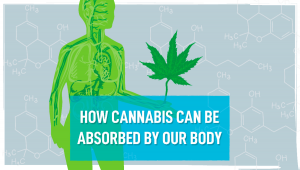New Research Finds Cannabis Has No Negative Effects On Cognitive Ability

- 1. The dusting off of old misconceptions
- 1. a. About cognitive ability
When it comes to the seem-to-be eternal battle for the acceptance and legalization of the use of marijuana, the one string people against it hang onto is the negative side effects that have been linked to this substance, considering mainly the so-believed cognitive impairment that the long term use of this drug is normally accused of causing.
But what if we told you that science has made a new discovery that comes to dust off all these old misconceptions of marijuana? Well, precisely, researchers have now found that cannabis has no significant residual effects on the way the brain works.
The Dusting Off Of Old Misconceptions
This is the astounding result of a recent cross-sectional analysis set to examine more than 800 adolescents between the ages of 14 and 19 years old who first engaged in the use of marijuana after the age of 15. 1
The findings were able to conclude that the common conception that cannabis use leads to the impairment in cognitive ability is in fact erroneous when it is used in moderation. As the study indicates, there was "no evidence to support the presumption that cannabis consumption leads to a decline in neurocognitive ability.”
About Cognitive Ability
A small parenthesis in case you're wondering, cognitive ability is a concept used to refer to brain-based skills involved in the process of learning, manipulating information, reasoning, thinking abstractly, solve problems, comprehend complex ideas, and more. Some examples include:
- Sustained attention;
- Selective attention;
- Divided attention;
- Long-term memory;
- Working memory;
- Logic and reasoning;
- Auditory processing;
- Visual processing;
- And processing speed.
The study found that moderate or low cannabis use, as well as late-onset of consumption, are actually associated with “increased decision-making skills both cross-sectionally at follow-up.”
Conclusion
This research could now turn into the pinpoint for more countries to make way to the full legalization of the use of marijuana, for not only medical but recreational purposes too.
Furthermore, if there's something that these findings couldn't make any more visible is the call for newer research to be addressed in the subject, given we can't continue to live in the misconceptions of the outdated studies led in the past. Cannabis is a plant that's broad in benefits and uses, and the more we get to know about it, the more we'll be able to enjoy and profit from them.
MEDICAL DISCLAIMER
This content is for educational purposes only. The information provided is derived from research gathered from external sources.
EXTERNAL REFERENCES











Comments